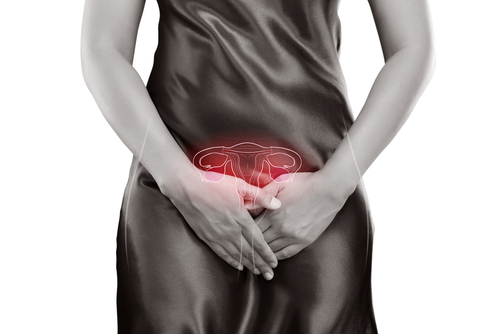How well do you know your period? I don’t just mean the science of it. I don’t mean the inner seasons or the hormones. I mean your period.
This year, I’ve mostly had really good periods. It comes down to the fact that I’ve been working on them for about five years, and now I’ve created a management system that works for me and keeps my period pretty normal. By getting to this point, I now know what my optimal period looks and feels like.
I don’t want us to experience judgment and tell ourselves off for a “bad” period if we have one. Sometimes stress and life just get in the way, and none of us are perfect! I’m not keeping on top of my endometriosis management all the time, and I still treat myself to a coffee and sugar now and then. But, to keep things simple, I’m using the terms “good” and “bad” in this column to distinguish between two types of periods.
During the five years I have been working on my endometriosis symptoms, I’ve really come to know my period. I’ve had to so I could monitor what works for me. And it’s been really interesting to watch things change. It’s helped me identify when I’m managing my endometriosis well, and when I’m not. It also helps me determine if I need to be extra careful with my management methods. Do I need to drink more calming tea, or support my liver more with particular foods?
I’m at a stage where I feel as if I’ve really come to know what works for me and what my version of a good period is. I want to share some of the wisdom I’ve gleaned from the experience.
- If I’ve managed my endometriosis well, I won’t have many PMS symptoms. If I’ve eaten a lot of sugar and caffeine, they’ll start up about two weeks beforehand, and I’ll have bad depression and premenstrual pain.
- A little while ago, I noticed I had quite a lot of cervical fluid when my period was due. This worried me because I wondered if it was a sign of pregnancy (which it can be). But in fact, it’s actually normal to have cervical fluid just before your period; it’s a sign that the period is on its way! So, now when I see it, I know that my period is a few hours to a day ahead and can be prepared.
- On a good period, I’ll start bleeding without realizing I have! This is a great sign that the management tools I’ve used this month worked well. I will have zero to very low pain, which goes away without painkillers; I just use some heat or magnesium spray.
- My average period now starts without much pain, but it increases about eight hours in. Because my pain levels are low these days, I usually can diminish this pain with simple paracetamol, magnesium spray, and some essential oils. I might throw in some yoga stretches while I wait for those remedies to kick in. What this tells me is that even though I probably can afford to go out for a walk or do a low-key activity when my period starts, I need to be back home and resting a couple of hours later so I can take care of myself and give my body what it needs. This is really helpful when it comes to planning.
- My period blood changes color during menstruation. I know I’m balancing my hormones well when it’s a bright, cranberry red in the earlier days. It’s normal for your period color to change over the days during your menstruation. To find out a bit more about the shades and what they mean, check out the Flo Living guide.
- My period used to be quite short, lasting about four days, which isn’t abnormal, but it turns out it wasn’t right for me. Since eating for my hormones and caring for my body to manage my endometriosis well, my period has lengthened and can last up to seven days. By the fourth day, it’s really light; the last two days won’t be much at all, but it’s still there. According to Flo Living, this is another sign that my hormones are balancing out.
There’s so much more I could share here, but now it’s your turn. Start to figure out when you’re most heavy, which day your period becomes a bit easier, and how much energy is normal for you to have around your period. This not only will help you get to know your body, but it’ll also help you recognize when your body is responding positively or negatively to your endometriosis management tools.
***
Note: Endometriosis News is strictly a news and information website about the disease. It does not provide medical advice, diagnosis, or treatment. This content is not intended to be a substitute for professional medical advice, diagnosis, or treatment. Always seek the advice of your physician or other qualified health provider with any questions you may have regarding a medical condition. Never disregard professional medical advice or delay in seeking it because of something you have read on this website. The opinions expressed in this column are not those of Endometriosis News or its parent company, BioNews Services, and are intended to spark discussion about issues pertaining to endometriosis.


